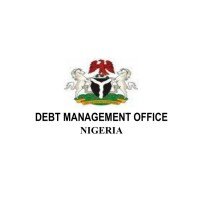Nigeria’s Debt Service Costs Rise in Q3 2024 Amid Currency Depreciation and Growing Obligations
Nigeria’s total debt service costs, encompassing both external and domestic obligations, surged in the third quarter of 2024. This increase was driven by higher external debt service payments and the continuing depreciation of the naira.
Rising Debt Service: Total Cost Hits N3.57tn
In Q3 2024, Nigeria’s total debt service cost reached an estimated N3.57 trillion, reflecting a quarter-on-quarter increase of N60 billion or 1.71% from N3.51 trillion in Q2. The Debt Management Office (DMO) attributed this rise to a combination of increased external debt payments and the currency’s weakening value.
External Debt Payments Soar
External debt service payments in Q3 2024 amounted to $1.34 billion, translating to N2.14 trillion when converted at the September exchange rate of N1,601.03/$. This marks a significant 29.7% increase in naira terms from the Q2 external debt service of $1.12 billion, valued at N1.65 trillion at the June exchange rate of N1,470.19/$.
The rise in payments was largely due to a combination of a depreciating naira and increased obligations to multilateral and bilateral creditors, as well as interest payments on commercial loans.
Multilateral and Bilateral Payments
Multilateral debt service remained the largest portion of external debt, totaling $712.66 million in Q3, a 6.04% increase from $672.01 million in Q2. This accounted for 53.26% of total external debt payments, reflecting increases in both principal repayments and interest charges.
Payments to the International Monetary Fund (IMF) also rose slightly to $406.98 million from $404.24 million in Q2. Bilateral debt service payments experienced a remarkable increase of 325.5%, climbing to $186.92 million from $43.92 million in Q2. This surge was primarily due to payments to China’s Exim Bank, which rose sharply to $182.04 million from zero in Q2.
Commercial Debt and Domestic Debt Service
Commercial debt service obligations, including Eurobonds and syndicated loans, totaled $438.68 million in Q3, marking an 8.48% rise from $404.46 million in Q2. Eurobond interest payments made up the bulk of this at $427.72 million.
Domestic debt service, meanwhile, decreased to N1.43 trillion in Q3 from N1.86 trillion in Q2. Federal Government bond interest payments surged to N1.25 trillion, a decrease from N1.68 trillion in the previous quarter. Bonds continued to dominate the domestic debt service portfolio, accounting for 87.41% of the total in Q3.
Interest payments on Nigerian Treasury Bills (NTBs) also grew significantly, rising to N168.53 billion from N107.48 billion in Q2, reflecting an increasing reliance on short-term borrowing.
Growing Concerns Over Debt Sustainability
Economic analysts are expressing growing concerns over the rising debt service costs, which are taking a substantial toll on Nigeria’s revenue. With both external and domestic obligations rising, the need for improved revenue generation and fiscal management has never been more urgent to ensure debt sustainability in the future.









